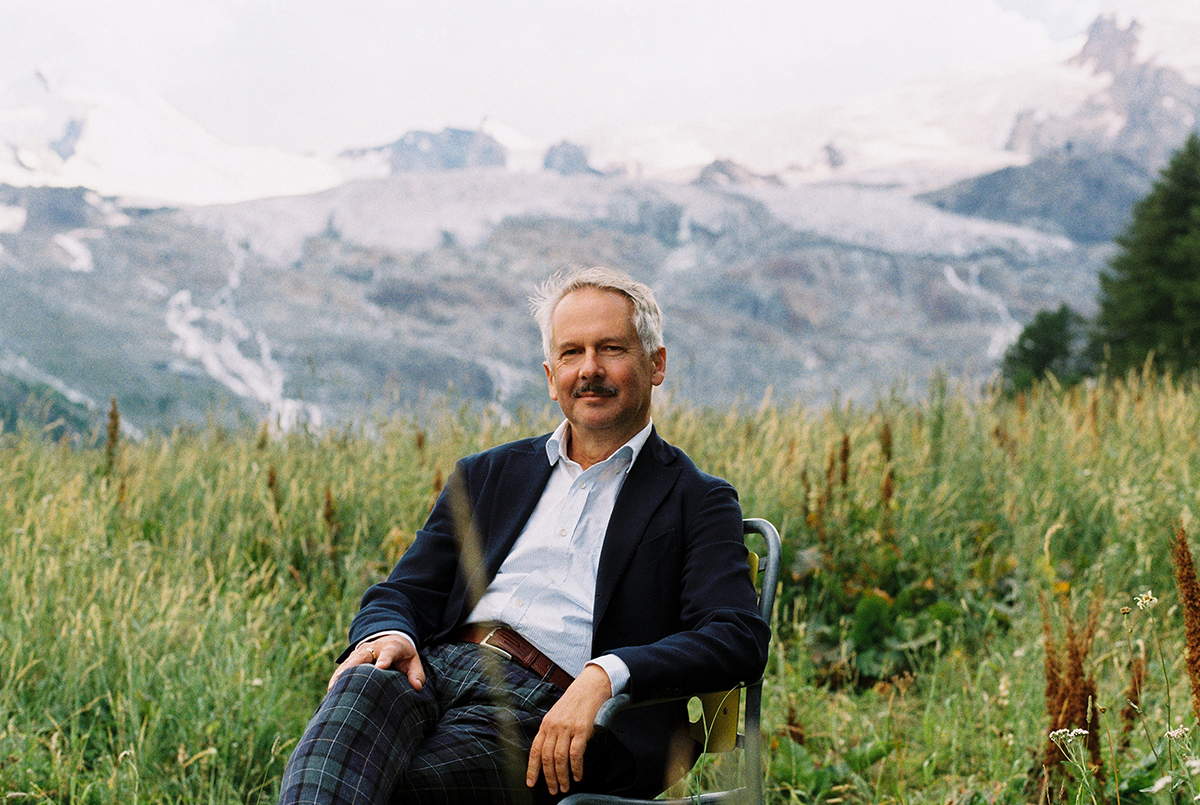Roger M. Buergel
Professor at The European Graduate School / EGS

Biography
Roger Martin Buergel (b. 1962 in Berlin, Germany) is a curator and critic. He is Director of the Johann Jacobs Museum in Zurich, which aims to “work[ ] on new forms of exhibiting in a small format. It ignores the usual museological concepts and categories to focus all its attention on a transcultural, intermediate realm. This intermediate realm knows no cultural identity, because it stems from relationships of exchange between North and South, East and West.”
Roger studied at the Academy of Fine Arts Vienna and subsequently became private secretary of Hermann Nitsch, the Viennese Actionist.
After research stays at the Massachusetts Institute of Technology and at UC Berkeley, California (with focus on the historiography of American post-war art) Buergel held a lectureship in Visual Theory at Leuphana University of Lüneburg, Germany (2001-2003), and a Visiting Professorship of Art History at the State Academy of Fine Arts in Karlsruhe, Germany (2007–2009).
Buergel is the first recipient of the Walter Hopps Award for Curatorial Achievement (The Menil Collection, Houston, Texas, 2002).
Between 2003 and 2007, Buergel was artistic director of documenta 12, Kassel (for which he was awarded the Hessian Culture Prize in 2015) and, in 2012, also of Busan Biennale 2012, South Korea.
The curator of the Ai Weiwei retrospective “Barely Something” at Museum DKM (Duisburg, Germany, 2010), Buergel recently curated the research and exhibition project “Mobile Worlds” (2015-2018), a collaboration between the Museum für Kunst und Gewerbe Hamburg (MKG), the European University Viadrina in Frankfurt/Oder, the Goethe University in Frankfurt/Main, and the Erich Kästner School in Hamburg-Farmsen. Invited by the MKG to work with its collection, it lead to the special exhibition “Mobile Worlds or the Museum of our Transcultural Present” (2018), curated in collaboration with Sophia Prinz and Julia Lerch-Zajączkowska. It “focused on the global movement of objects, people and ideas past and present and the associated intertwining of cultural forms and worlds of life. This perspective reflected the social, cultural and political complexity of post-migrant society. The exhibition has been understood as a medium that allowed objects, texts and images to be linked in a performative way, as if in a three-dimensional collage.”
Other curatorial projects include the exhibition series “Die Regierung”, co-curated with Ruth Noack (at Kunstraum Leuphana Universität Lüneburg, MACBA Barcelona, MAC Miami Art Central, Secession Vienna, and Witte de With Center for Contemporary Art, Rotterdam, 2003-2005); “Formen der Organisation” , co-curated with Ruth Noack (at Kunstraum Leuphana Universität Lüneburg, Škuc Galerija, Ljubljana, and Galerie der Hochschule für Grafik und Buchkunst, Leipzig, 2002-2003); “The Subject and Power (the lyrical voice)” (at Central House of the Art/CHA, Moscow, 2001); “Dinge, die wir nicht verstehen”, co-curated with Ruth Noack (at Generali Foundation Vienna, 2000) and “Gouvernementalität. Kunst in Auseinandersetzung mit der internationalen Hyperbourgeoisie und dem internationalen Kleinbürgertum“ (Alte Kestner Gesellschaft Hannover, 2000).
In addition to numerous articles, essays, and reviews, Buergel authored the Monografie über Peter Friedl (1999, Verlag der Kunst) and, together with Stefanie-Vera Kockot, edited “Abstrakter Expressionismus. Konstruktionen ästhetischer Erfahrung” (2000, Verlag der Kunst).

